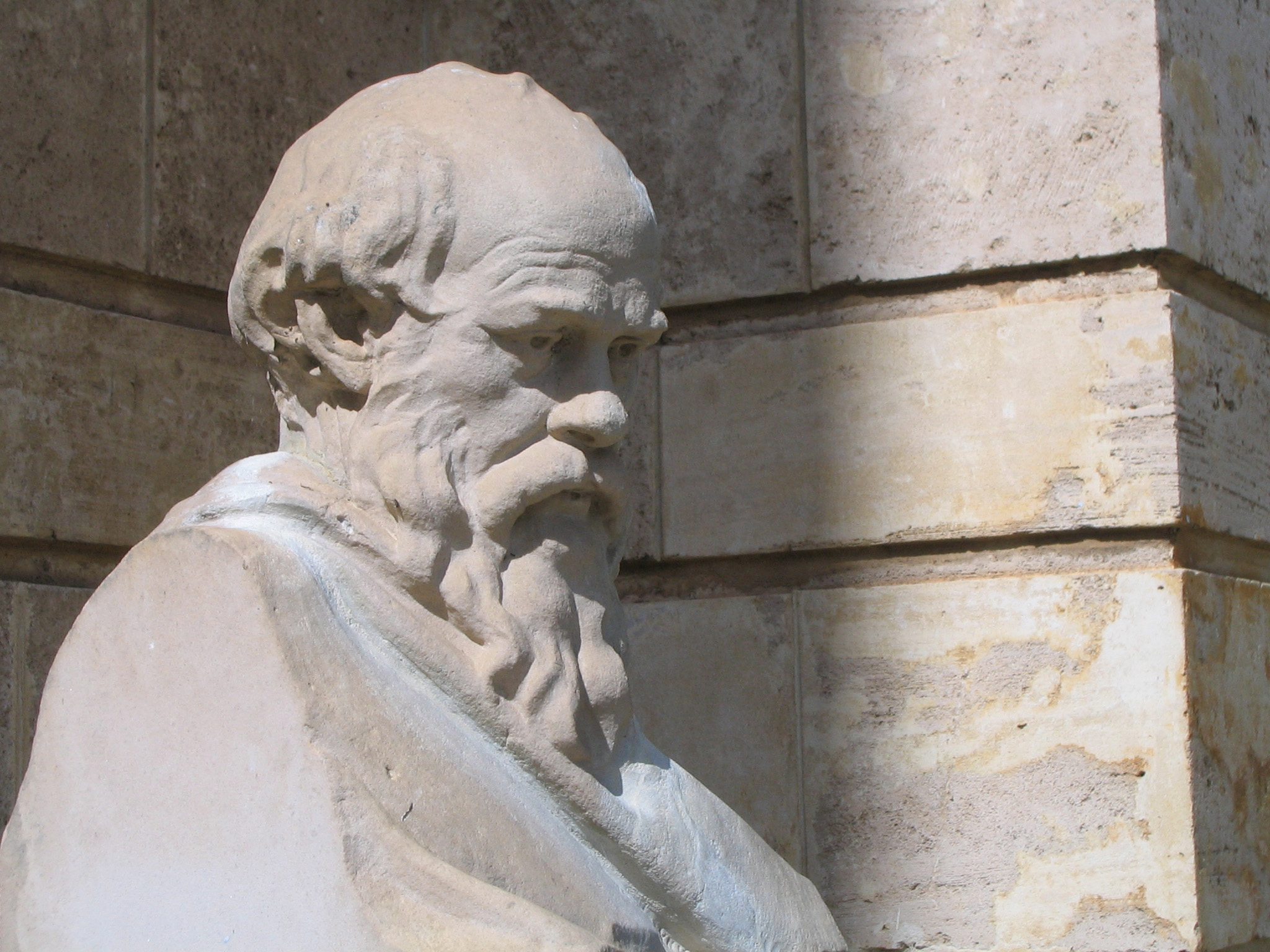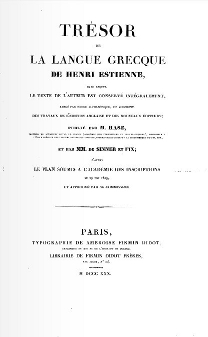|
Demodocus (dialogue)
''Demodocus'' (; ) is purported to be one of the Dialogues of Plato. The dialogue is extant and was included in the Stephanus edition published in Geneva in 1578. It is now generally acknowledged to be a fabrication by a late sophist or rhetorician, probably later than mid-fourth century BC.John Madison Cooper, D. S. Hutchinson, (1997), ''Plato, Complete works'', page 1699. Hackett Publishing. It appears to be a combination of two separate works. The first part is a monologue (addressed to Demodocus), which argues against collective decision-making. There then follows a trilogy of dialogue Dialogue (sometimes spelled dialog in American and British English spelling differences, American English) is a written or spoken conversational exchange between two or more people, and a literature, literary and theatrical form that depicts suc ...s (with anonymous participants) which raise three elements of doubt against common sense. References External links ''Demodocus''transl ... [...More Info...] [...Related Items...] OR: [Wikipedia] [Google] [Baidu] |
Dialogues Of Plato
Plato ( ; Greek: , ; born BC, died 348/347 BC) was an ancient Greek philosopher of the Classical period who is considered a foundational thinker in Western philosophy and an innovator of the written dialogue and dialectic forms. He influenced all the major areas of theoretical philosophy and practical philosophy, and was the founder of the Platonic Academy, a philosophical school in Athens where Plato taught the doctrines that would later become known as Platonism. Plato's most famous contribution is the theory of forms (or ideas), which aims to solve what is now known as the problem of universals. He was influenced by the pre-Socratic thinkers Pythagoras, Heraclitus, and Parmenides, although much of what is known about them is derived from Plato himself. Along with his teacher Socrates, and his student Aristotle, Plato is a central figure in the history of Western philosophy. Plato's complete works are believed to have survived for over 2,400 yearsunlike tha ... [...More Info...] [...Related Items...] OR: [Wikipedia] [Google] [Baidu] |
Henri Estienne
Henri Estienne ( , ; 1528 or 15311598), also known as Henricus Stephanus ( ), was a French printer and classical scholar. He was the eldest son of Robert Estienne. He was instructed in Latin, Greek, and Hebrew by his father and would eventually take over the Estienne printing firm which his father owned in 1559 when his father died. His most well-known work was the ''Thesaurus graecae linguae'', which was printed in five volumes. The basis of Greek lexicology, no thesaurus would rival that of Estienne's for three hundred years. Among his many publications of Greek authors, his publications of Plato are the source of Stephanus pagination, which is still used to refer to Plato's works. Estienne was also responsible for the first printed Latin translation of the works of Sextus Empiricus in 1562, which scholars credit for the diffusion of Pyrrhonian skepticism in early modern Europe and its adoption by highly influential skeptical philosophers such as Michel de Montaigne. Estie ... [...More Info...] [...Related Items...] OR: [Wikipedia] [Google] [Baidu] |
Rhetorician
Rhetoric is the art of persuasion. It is one of the three ancient arts of discourse (trivium) along with grammar and logic/dialectic. As an academic discipline within the humanities, rhetoric aims to study the techniques that speakers or writers use to inform, persuade, and motivate their audiences. Rhetoric also provides heuristics for understanding, discovering, and developing arguments for particular situations. Aristotle defined rhetoric as "the faculty of observing in any given case the available means of persuasion", and since mastery of the art was necessary for victory in a case at law, for passage of proposals in the assembly, or for fame as a speaker in civic ceremonies, he called it "a combination of the science of logic and of the ethical branch of politics". Aristotle also identified three persuasive audience appeals: logos, pathos, and ethos. The five canons of rhetoric, or phases of developing a persuasive speech, were first codified in classical Rome: invention, ... [...More Info...] [...Related Items...] OR: [Wikipedia] [Google] [Baidu] |
Monologue
In theatre, a monologue (also known as monolog in North American English) (in , from μόνος ''mónos'', "alone, solitary" and λόγος ''lógos'', "speech") is a speech presented by a single character, most often to express their thoughts aloud, though sometimes also to directly address another character or the audience. Monologues are common across the range of dramatic media (plays, films, etc.), as well as in non-dramatic media such as poetry. Monologues share much in common with several other literary devices including soliloquies, apostrophes, and asides. There are, however, distinctions between each of these devices. Similar literary devices Monologues are similar to poems, epiphanies, and others, in that, they involve one 'voice' speaking but there are differences between them. For example, a soliloquy involves a character relating their thoughts and feelings to themself and to the audience without addressing any of the other characters. A monologue is the though ... [...More Info...] [...Related Items...] OR: [Wikipedia] [Google] [Baidu] |
Dialogue
Dialogue (sometimes spelled dialog in American and British English spelling differences, American English) is a written or spoken conversational exchange between two or more people, and a literature, literary and theatrical form that depicts such an exchange. As a philosophy, philosophical or didactic device, it is chiefly associated in the West with the Socratic dialogue as developed by Plato, but antecedents are also found in other traditions including Indian literature. Etymology The term ''dialogue'' stems from the Greek language, Greek (, ); its roots are (, ) and (, ). The first extant author who uses the term is Plato, in whose works it is closely associated with the art of dialectic. Latin took over the word as . As genre Antiquity Dialogue as a genre in the Middle East and Asia dates back to ancient works, such as Sumerian disputations preserved in copies from the late third millennium BC, Rigvedic dialogue hymns, and the ''Mahabharata''. In the West, Plato ( BC ... [...More Info...] [...Related Items...] OR: [Wikipedia] [Google] [Baidu] |
Common Sense
Common sense () is "knowledge, judgement, and taste which is more or less universal and which is held more or less without reflection or argument". As such, it is often considered to represent the basic level of sound practical judgement or knowledge of basic facts that any adult human being ought to possess. It is "common" in the sense of being shared by nearly all people. Relevant terms from other languages used in such discussions include the aforementioned Latin, itself translating Ancient Greek ('), and French '. However, these are not straightforward translations in all contexts, and in English different shades of meaning have developed. In philosophical and scientific contexts, since the Age of Enlightenment the term "common sense" has been used for rhetorical effect both approvingly and disapprovingly. On the one hand it has been a standard for good taste, good sense, and source of scientific and logical axioms. On the other hand it has been equated to conventional wisdom ... [...More Info...] [...Related Items...] OR: [Wikipedia] [Google] [Baidu] |
George Burges
George Burges (; 1786 – 11 January 1864) was an English classical scholar who published translations of the works of Euripides, Aeschylus, Sophocles, and Plato. Biography Burges was born in Bengal, India, and was probably the son of Thomas Burges (d.1799) of Calcutta. He was educated at Charterhouse School and Trinity College, Cambridge, taking his B.A. degree in 1807 and obtaining one of the members' prizes both in 1808 and 1809 before becoming an M.A. in 1810. He stayed up at Cambridge and became a most successful coach and tutor. He had a great reputation as a Greek scholar, and was a somewhat acrimonious critic of rival scholars, especially Bishop Blomfield. Subsequently, he fell into embarrassed circumstances through injudicious speculation, and in 1841 a civil list pension of £100 per annum was bestowed upon him. He died at Ramsgate, on 11 January 1864. Burges was a man of great learning and industry, but too fond of introducing arbitrary emendations into the text of ... [...More Info...] [...Related Items...] OR: [Wikipedia] [Google] [Baidu] |






